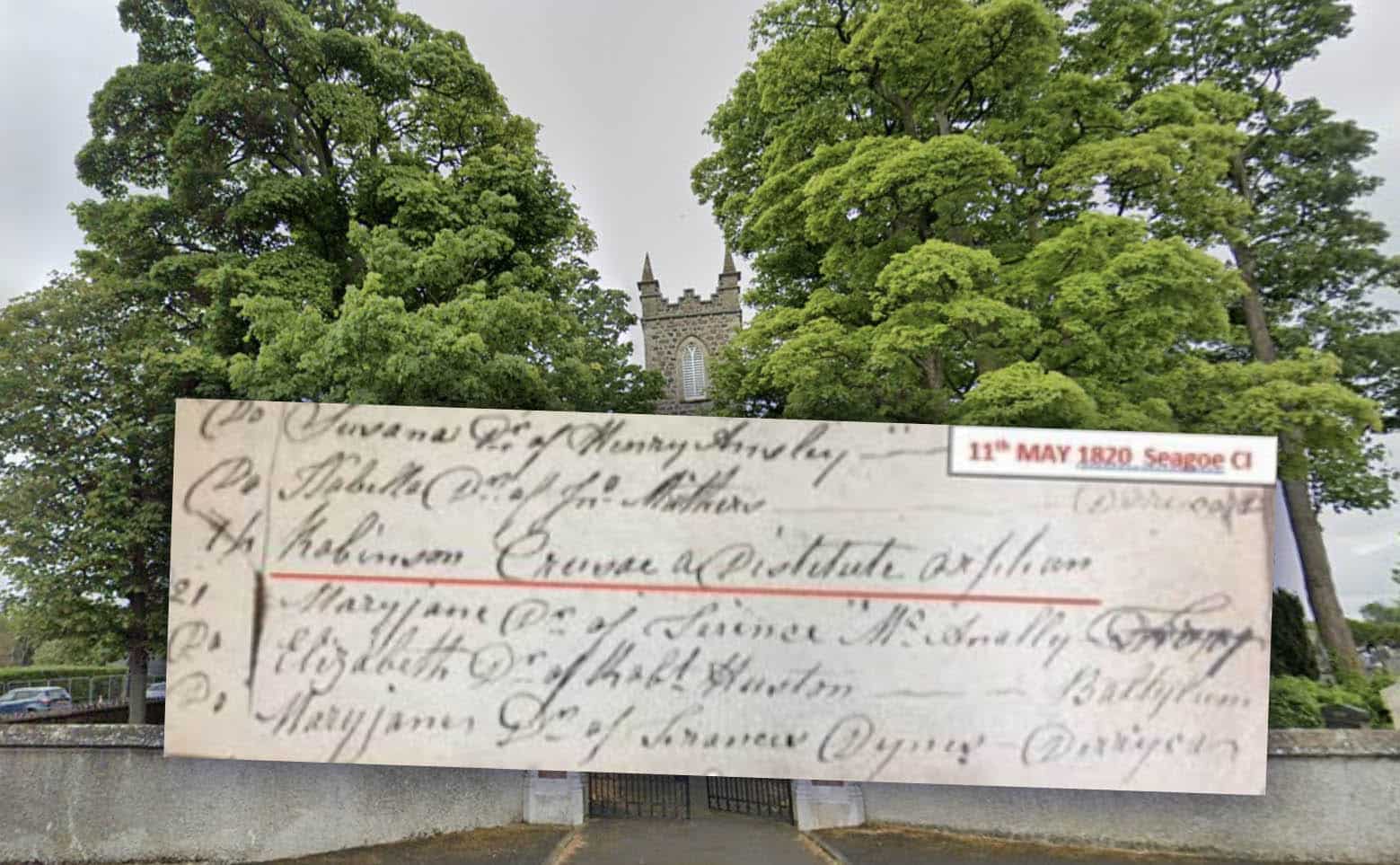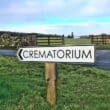
Armagh’s Robinson Crusoe – has he any descendants? writes Feargal O’Donnell (Armagh Ancestry – Genealogy Ireland)
Most people are familiar with the exploits of Daniel Defoe’s novel Robinson Crusoe which was first published in 1719 and many query if the main character was actually based on a real person.
Many have since asserted that he was indeed based on a real person as were his exploits. As the old saying goes, ‘beauty is in the eye of the beholder’ and you can conduct your own research of the various theories and make up your own mind. Defoe was a Puritan, a group of English Protestants in the 16th and 17th centuries who sought to purify the Church of England of Roman Catholic practices, maintaining that the Church of England had not been fully reformed and should become more Protestant.
With a Puritan ethos, the novel shares a religious theme and the time which Crusoe spends reading his Bible (the only book available to him at the time) and with nature portrays a growing closeness to God. The novel draws a Christian notion of providence, penitence, and redemption, characterising Crusoe with the follies of youth. Some refer to it as not Crusoe’s deliverance from the island, but his spiritual deliverance, his acceptance of Christian doctrine, and his intuition of his own salvation.
Fast forward 100 years and as part of Armagh Ancestry’s computerisation program, in conjunction with Genealogy Ireland, we are introduced to the baptism in Seagoe Church of Ireland Church, near Portadown, County Armagh, of a child being christened Robinson Crusoe on 11 May 1820. The Crusoe surname is certainly not one associated with the historic ‘orchard’ county of Armagh and a search of Armagh Ancestry’s vast genealogy database failed to locate another Crusoe birth, marriage, or death.
A search of the all-Ireland Civil Registers 1845-1922 found only one other recorded Crusoe, named Dan in 1886 in County Westmeath and Roots Ireland’s database only held four Crusoe entries. So how or why did the child end up with such a ‘monicker’?
The Robinson Crusoe in question is described as ‘a destitute orphan’ and no additional family details are recorded.
We can only assume the child was abandoned and being referred to as an orphan rather than a foundling would suggest the child to be older than a recently born baby. While a foundling is sometimes an orphan, they normally refer to new-born babies whose parents are not able to care for them. In cases like this, parents sometimes abandon their babies in safe places like hospitals or churches.
Perhaps ‘our’ Robinson Crusoe was a toddler and for unknown reasons, he was abandoned close to Seagoe Church in a place where his parents would know he would be found and they possibly watched over him from a distance until he was safely discovered. We cannot guess the social status of his parents or the situation they may have been in at the time, however, we can feel relieved that he was found safe and well. Experience of using Church records would allow me to assume the young Robinson Crusoe would have been named by either the person who found him or by the local clergyman and that shortly after he would have been transferred to the Anglican Foundling Hospital in Dublin. Our computerised database for County Armagh has numerous foundlings being baptised and the record usually states they were sent to the Hospital in Dublin. Foundlings are often baptised with the surname of the person who found them or by the place they were found; Hall, Hill, Green, Lonan, or Drummond. With ‘our’ Robinson Crusoe, we can only surmise the clergyman who baptized him may have had Puritan ideology or may have been referencing Robinson Crusoe in his sermons and felt such a monicker would be fitting for the child.
We did try to follow our Robinson Crusoe through our County Armagh databases, and indeed Roots Ireland’s extensive databases, however, we could not locate a marriage or death for him. It is quite likely that he was sent to Dublin’s Anglican Foundling Hospital and then abroad to one of the British Colonies or Anglican Missions like some of the orphans of the period. Sean O’Riordan in his excellent piece in the Irish Examiner on 8 August 2021 notes that Dublin’s Anglican Foundling Hospital had quite a horrid reputation in the period between 1728–1828 and it served the purpose of removing unwanted infants from the view of Irish society.
With a stated aim ‘to make good Protestants of the foundling children’, conditions were bleak, often resulting in illness and death and once inside the doors, the fate of the infants was determined by chance — healthy children sent out ‘to nurse’ and, if they survived, raised in the tradition of the established Protestant Church. However, infants deemed ‘unhealthy’ were dispatched to the infirmary where they died in a systematic manner, of 5,213 infants admitted to the infirmary part of the Dublin Foundling Hospital between 1791 and 1796, only three survived — all the rest died.
For our County Armagh Robinson Crusoe, we can only hope he found peace and happiness in life and that he lived a good life outside Ireland. Hopefully, he married and had children and you never know some of his Crusoe descendants may be trying to locate their Irish ancestry and their spiritual home.
If you wish to contact Feargal, you can do so using this email: info@armaghancestry.ie





